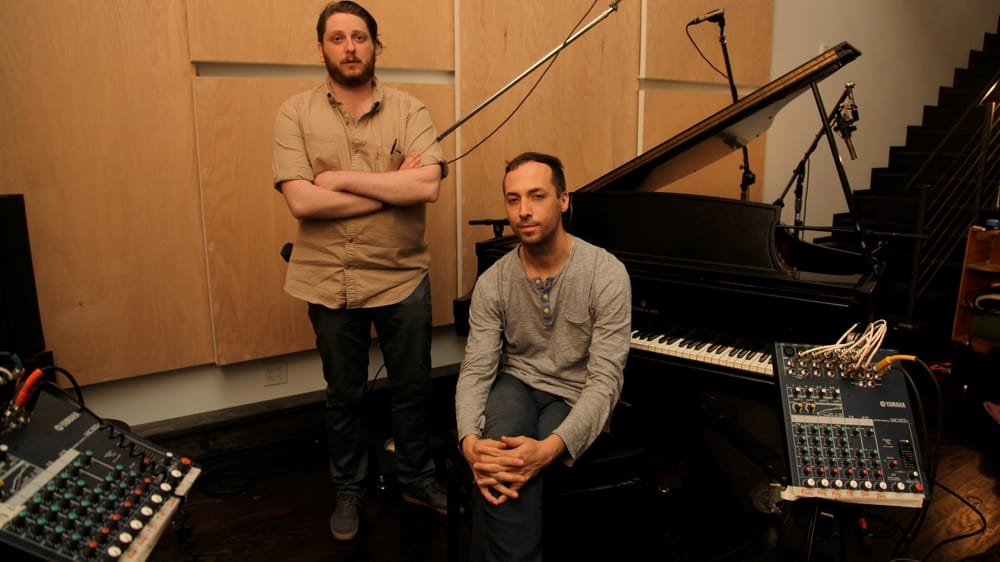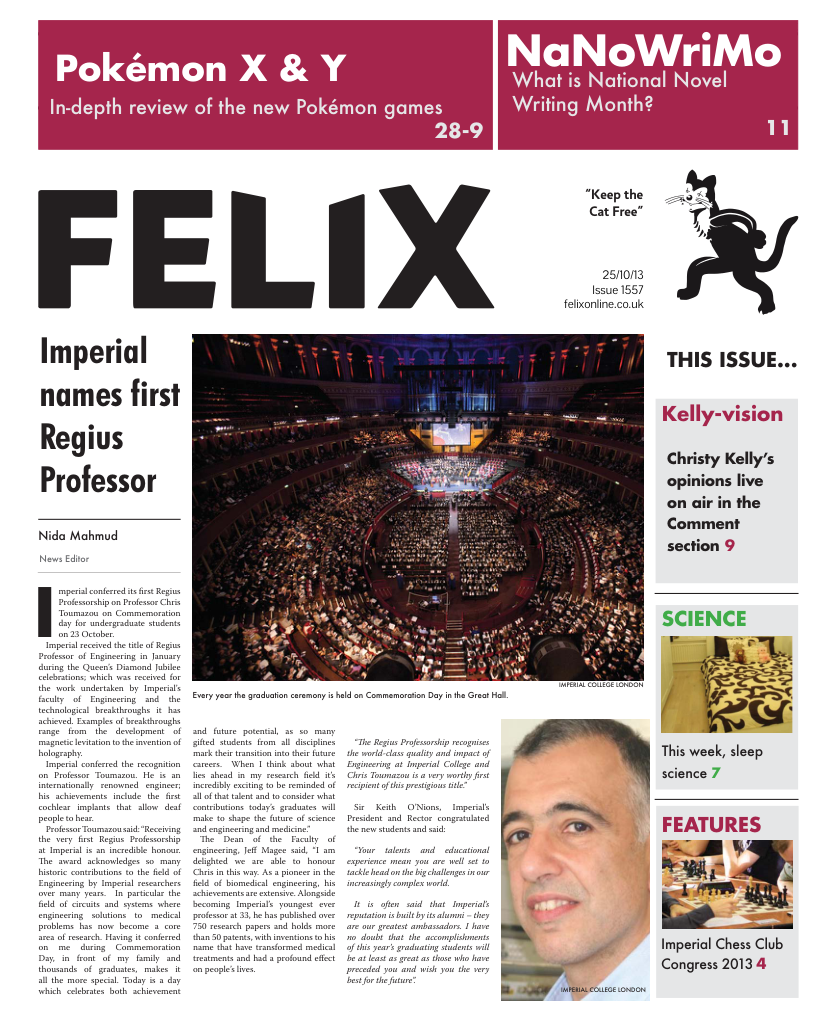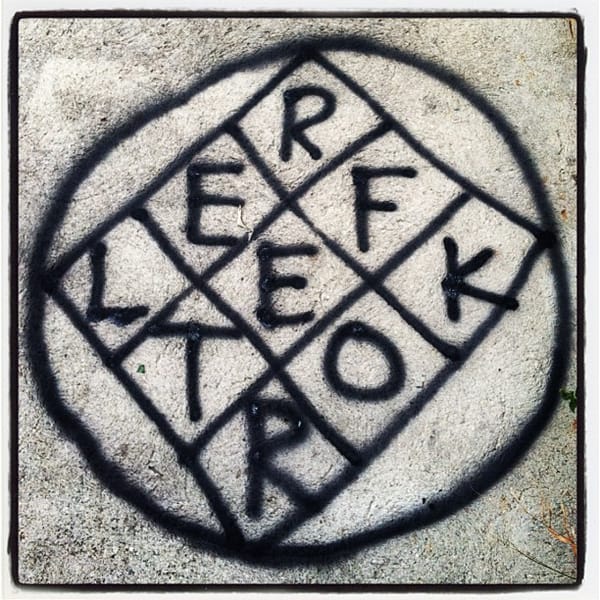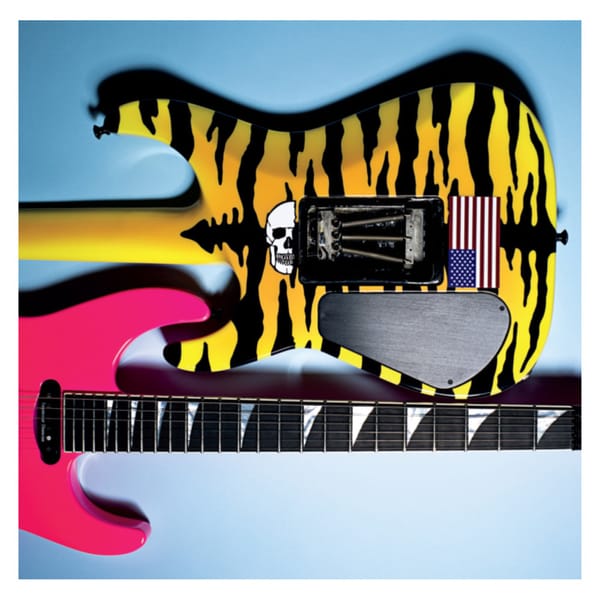Oneohtrix Point Hecker
Riaz Agahi examines albums from modern ambient’s greats

Tim Hecker and Oneohtrix Point Never are two of the most successful ambient musicians of recent times. Tim Hecker is widely famed for his immersive live performance, where he plays to an audience on a pitch black stage in a pitch black venue, putting all of the audience’s attention on the music and deservedly so. It’ll be a long time before I see a live performance more delightfully spine chilling than his hauntingly cathartic, distorted organ based performance at St. Giles in the Field last year. Oneohtrix, I would argue, went a long way towards popularising the genre with tracks such as ‘Andro’ enveloping the listener in warm sounds, enjoyed by pretty much everyone I know who’s heard it. Having moved away from the more conventional but always distinctive ambient he used to produce towards a more readily accessible style in recent releases like 2011’s Replica, he has still managed to keep his distinctive style throughout. Tim Hecker has similarly popularised the likes of drone, with albums like previous full length Ravedeath, 1972 becoming favourites in recent alternative music. It is his subsequent EP, however, that really proves the best starting point here. Dropped Pianos, of course a play on ‘The Piano Drop’, off Ravedeath, consists of several short sketches of piano experimentation from Hecker. It provides a natural companion piece to Ravedeath which was interestingly recorded before Ravedeath. Dropped Pianos was seen as cold and stark but for my money it distils some of Hecker’s more terrifying moments into the more restrained medium of piano. This is an approach that’s seemingly been incorporated into Virgins, his fourth full-length album released on Kranky. Opening track ’Prism’ balances dissonance, melody and pulsating drones in a way wouldn’t be too out of place on earlier releases such as Harmony In Ultraviolet, and his familiar sound is present particularly some organ work reminiscient of Ravedeath, 1972. In amongst all of this, however, is the appearance of new elements, such as the piano work which accompanies the more conventional and experimental elements and at times recalls early minimalism such as Philip Glass or Charlemagne Palestine. There is even a greater presence of wind instruments for example in ‘Live Room,’ as well as some rather face melting bassy noise clicks. The noise is made even more hard hitting by the more melodic repetitive background. Most people will probably think that calling this noise is a slight overstatement, and I would say that’s a fair point. I would also say, though that the work approaches noise, but it’s blended with melody in a similar manner to Norwegian band Puma.
This is certainly Hecker’s most eclectic release to date, with moments similar to Fennesz (‘Stigmata I’) and Oneohtrix Point Never (‘Virginal II’). The view that Tim Hecker is similar to Oneohtrix is a widely acknowledged opinion, but I actually think last year’s collaboration – Instrumental Tourist, showed a real contrast between their styles which were elegantly blended together. Perhaps it isn’t going too far to suggest that Hecker has been influenced by his Brooklyn based collaborator.
Daniel Lopatin (Oneohtrix Point Never), in his latest effort, R Plus Seven, continues in the direction of his previous album, Replica – moving from ambient into more poppy, less abstract, melodic sounds. This may sound derisory, but he has stepped into this territory in a novel way, with tracks like ‘Americans’ resembling sound collage and as such it could be argued that a still unmistakably distinctive Lopatin is exploring more accessible grounds through an experimental approach of sound collage and sampling.
In fact, a lot of ‘Zebra’ would fit in pretty comfortably with Replica, albeit with some jazzy textures mixed in. There is however a wealth of diverse textures and it’s certainly more eclectic than Virgins. In my opinion the most prominent feature is Lopatin’s manipulation of vocal samples, in a way not dissimilar to Battles on their debut album Mirrored, generally in conjunction with subtle effects and a pretty chilled out vibe all things considered. Tracks like ‘He She’ are admittedly a little hard to take on the first listen, a disjointed cacophony of almost Enya-esque vocal samples, but through this rather unusual component he manages to create soundscapes which both thrill and please, taking a previously used element to its logical extreme yet making the result rather comforting in a strange way.
A great example of this is ‘Along,’ at times reminiscient of Hyperrealism such as Noah Creshevsky, who uses vocal and other samples in a way that exaggerates them. No analysis would be complete without considering Lopatin’s synth work. Tracks like ‘Problem Areas’ almost suggest the influence of dance music in a much more obvious way than I’ve heard from him before. Not to mention that, but the extremely relaxing and mildly cathartic closer ‘Chrome Country’ has some evocative synth lines reminiscient of Panabrite or some of the other excellent space rock inspired electronic acts on VCO. The album ends in typically strange form, with a rather evocative organ flourish.
Both Oneohtrix and Hecker have distinctive musical voices and seemingly both have managed to bring new dimensions into their music, creating fascinating records, mixing comfort with discomfort and creating albums that are evolutionary rather than rehashing past glories. As is often said, however, the more things change, the more the stay the same and in both Virgins and R Plus Seven, new ground is covered while still retaining their unique musical identities. R Plus Seven was released on September 30th on Warp Records, Virgins is to be released on Kranky on October 14th.








